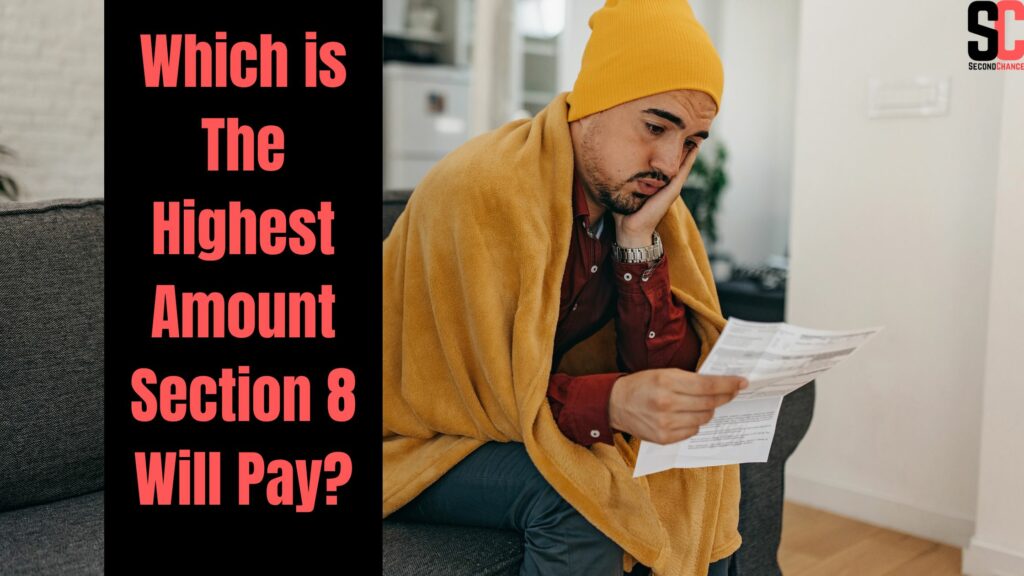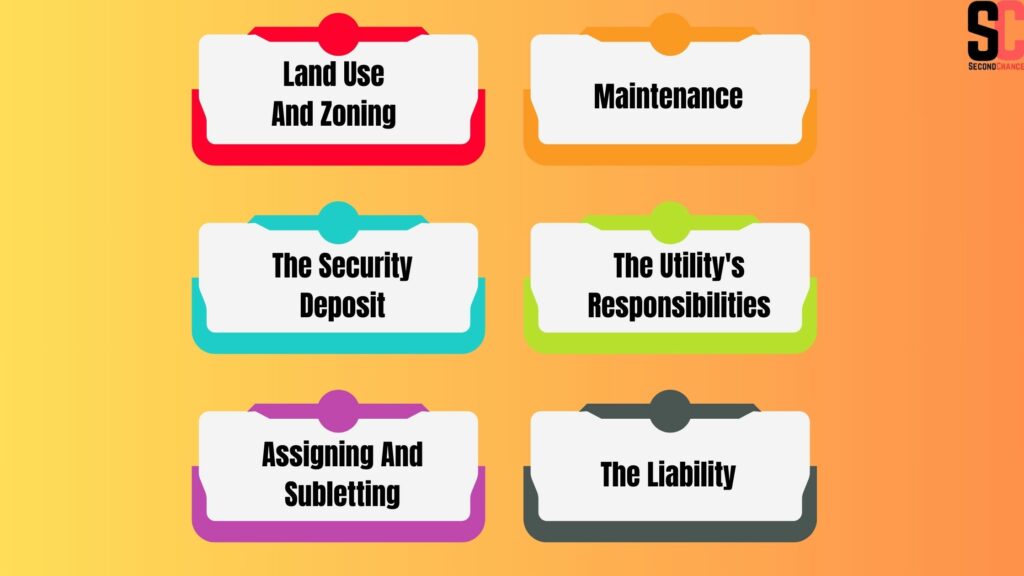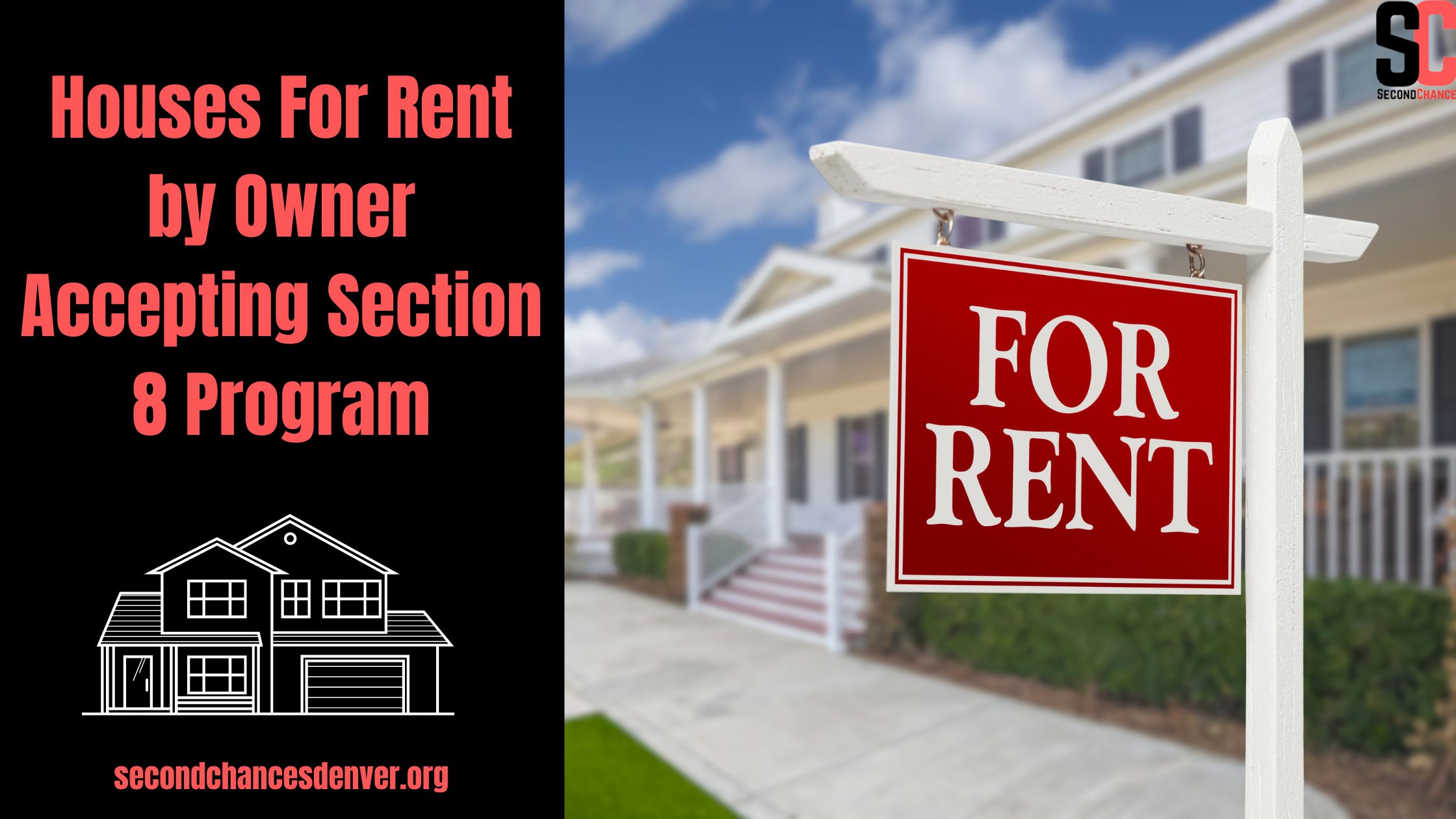If you’re in search of Houses For Rent by Owner Accepting Section 8 Program, you’ve landed on the right page.
The challenge of finding affordable housing is well known to many renters today. Compared with last year, rent has increased by more than 20 percent.
Low-income families often use housing vouchers to cover rent costs. More than 5 million households receive federal rental assistance through the Section 8 program of the Department of Housing and Urban Development, and about 70% of these households are elders, children, or disabled individuals.
However, there are still many renters who don’t know where to look for landlords who accept housing vouchers. The following tips will help you understand what housing vouchers are and how to find Houses For Rent by Owner Accepting Section 8 Program.
Let’s start.
Table of Contents
What Are For Rent by Owner Houses?
A For Rent by Owner house is rented out by the owner directly without the involvement of a property management company. This type of rental doesn’t require you to work with a leasing agent. The landlord can help you with general issues or maintenance directly.
Typically, these rentals offer more flexibility regarding lease duration and rent price because you deal directly with the owner.
What is Section 8 And How Does it Work?

A Section 8 Housing Choice Voucher is part of the government’s rent assistance program. In 2018, upwards of 5 million households used vouchers to pay some or all of their rent.
In 1974, Congress established Section 8 of the Housing and Community Development Act to ensure that low-income families could live in “decent housing” outside of public housing.
People who meet the income requirements can now apply for vouchers when available under the program. After being approved, selected, and finding a place to live with the voucher, their local housing authority starts sending payments directly to landlords.
The payments cover a portion or all of the voucher holder’s rent. Section 8 Housing For Single Mothers often allows households to pay between 30% and 40% of their income on rent, providing essential support for affordable living.
Why Do Tenants Want To Rent Houses For Rent by Owner?
What makes tenants look for Houses For Rent by Owner? A For Rent By Owner agreement offers tenants a multitude of benefits in addition to cost savings.
Saves Money
A landlord may be willing to negotiate rent and fees with tenants who rent directly from them. The fact that they also manage their property listing enables them to invest more in maintaining and repairing their rental units.
Focus
Renters and rental owners have a one-to-one relationship because there are no middlemen, allowing for more open communication. Landlords are usually more willing to work with tenants on maintenance requests and other issues.
Flexible
A homeowner also provides flexibility since the company doesn’t make decisions; the homeowner does. Consider a situation in which a tenant has a bad credit history. In that case, they would have a better chance of striking a deal with the property owner than with a broker or rental management company.
What To Prepare Before Looking For Houses For Rent by Owner Accepting Section 8 Program

A budget and your application documents should be prepared before you start looking for Houses For Rent by Owner, whether from a private landlord or otherwise. The following information will help you prepare for your home search:
Budget
The amount of rent you can afford every month is a crucial factor to consider. You can determine your budget using two main formulas:
- Make sure your rent doesn’t exceed a fourth of your income. If you earn $5,000 a month, your rent should not exceed $1,250. The maximum monthly rent amount is calculated by multiplying take-home pay by 4.
- The gross yearly salary (before taxes) must be at least 40 times your monthly rent. If your family’s annual salary is $100,000, your rent shouldn’t exceed $2,000. You can calculate your maximum monthly rent by multiplying your household salary by 40.
- After determining your budget, you should also consider your security deposit, moving costs, and utility bills. You should also look at the rental market in different areas and for different types of houses.
Good Credit Score
An applicant’s credit score must be at least 650 to be considered by most landlords. If you have a credit score of less than 650, you have a few options:
- To improve your credit score, make sure you pay all your bills on time, pay off all your credit cards, and don’t apply for new credit too often.
- You can co-sign so your landlord has a sense of security since he can turn to your co-signer in case you don’t pay.
- Don’t forget to provide your potential landlord with all the documentation they need to verify your financial capability. A bank statement, a pay stub, and a tax return are some examples of these documents.
- You can offer to pay a few months’ rent in advance. It’s better if you can pay more. In most cases, two to three months’ rent is sufficient.
Essentials
You should make a list of non-negotiables, which are those things you will not compromise on. Here are some examples:
- You may desire a neighborhood with schools, grocery stores, or workplaces nearby. It might also be a good idea to take into account the crime rate in the area to make sure your family and you are safe.
- Are there any specific amenities you must have? Are you looking for in-house laundry, a large backyard for your pets, or a two-car garage?
- What is the right size house for your family? Do you need multiple bedrooms? What about a smaller house?
As soon as you start looking for a rental, you can filter your options using a list of must-haves.
Required Documents For Houses For Rent by Owner Accepting Section 8 Program
Ensure you have all the documents you need to submit with your application to the Houses For Rent by Owner. The following are among them:
- An employer’s information or verification
- Detailed pay stubs
- A bank statement or proof of equity
- A history of rentals
- References from former employers or landlords
- Your pets’ characteristics (such as their breed and size)
- Utility transfer proof
The post-dated check will help you indicate you’re ready to rent, and it may also help you win a bidding war. Get a copy of your credit report when you create an Avail Renter Profile in advance.
How To Find Houses For Rent by Owner Accepting Section 8 Program?
Listed below are the steps for finding apartments and other Houses For Rent by Owner Accepting Section 8 Program:
- You can find property owners who accept vouchers by contacting your local PHA.
- You can apply for the program and find out if your local HUD office accepts vouchers by contacting them.
- Several friends and family members may be able to recommend private landlords who accept vouchers that accept the vouchers.
- Find properties in your area by searching Rentals.com. To find “income-restricted” rentals, you can apply a filter.
How To Apply For Houses For Rent by Owner Accepting Section 8 Program?

You should apply for a lease once you’ve found the apartment or house that suits your needs.
- Your paperwork needs to be submitted to the landlord. The housing authority must receive the completed paperwork. The paperwork includes a “request for tenancy approval,” which you’ll receive when you receive your voucher. The housing authority should receive a copy of the lease and a request for tenancy approval.
- The lease should be read carefully. If you don’t understand something, ask questions. These leases can be complicated and difficult to understand, and they have loopholes that could put you at a disadvantage, according to housing lawyers. The housing authority recommends that you read the lease with a housing advocate or local lawyer before signing it.
- Always keep inspections in mind. The housing authority will set up a time to inspect the place within a few days or weeks of signing the lease. You can move in once everything passes inspection.
Where Can I Use Section 8 Vouchers?
Some private landlords do not accept Section 8, but many apartments and houses around the country do—as long as they comply with federal regulations.
Private Landlords Screen Renters
In Single Family Homes For Rent That Accept Section 8, landlords still screen tenants. In most cases, this includes a background check and a credit check to determine whether the person has a criminal history or a history of renting.
HUD Must Approve Apartments
The HUD must approve private landlords’ apartments and other properties in order to accept Section 8. A Section 8 renter can’t live there otherwise.
A landlord will submit a tenancy request to HUD detailing the address of the apartment or other rental property, the projected lease start date, the tenant’s rent, and any utilities included.
Rental Properties Must Pass An Inspection
The local PHA and HUD inspect apartment buildings and other rentals that accept Section 8.
HUD sets minimum housing standards, which have to be met in order to qualify for Section 8. The standards emphasize safety, security, and property conditions. All apartments and other rentals must guarantee that residents’ health, safety, and security are protected.
A Section 8 inspection is conducted once a year. A landlord’s inspection must approve Section 8 payments before they can continue to accept them.
Follow The Lease
Private landlords must follow the lease agreement when accepting Section 8 renters. A private landlord is responsible for repairing and maintaining their units in accordance with the lease agreement.
The lease also requires Section 8 tenants to pay rent on time and follow other regulations.
Inform HUD of rent increases
A landlord can increase the rent on a Section 8 apartment or house if they are a private landlord. All they need to do is inform their local HUD office in advance.
Private landlords are required to charge Section 8 renters the same amount as other renters for comparable apartments. There is a one-time rent increase limit.
Follow Fair Housing Laws
The Fair Housing law protects Section 8 renters from discrimination when renting a home.
A fair housing policy does not discriminate on the basis of a person’s race, color, national origin, religion, family status, or disability.
Which is The Highest Amount Section 8 Will Pay?

In the Section 8 program, the PHA determines how much it will pay private landlords based on many factors, including the area’s average rent.
The government pays 90 to 110 percent of the fair market rate, depending on where the property is located.
Those receiving Section 8 must contribute to their rent as well. The amount varies, but it is usually 30 percent of their adjusted monthly income or 10 percent of their monthly gross income.
Landlords That Accept Section 8 Housing Vouchers. There is a part of the rent covered by Section 8, but it does not cover everything. There is still a security deposit that renters have to pay.
Living With A Section 8 Housing Voucher
The Section 8 process has been explained to us by people who have plenty of experience with it. The overall impression we’ve got is that it’s no different from living in other apartments. People frequently mention some challenges that come up when living with a voucher.
The following are some things you need to know about Section 8 housing:
- Always pay your rent on time, no matter what. Be sure to keep a copy of the receipt of all payments you make.
- Make sure everything is in writing. If your landlord contacts you and informs you that you need to pay for a repair, ask for a written explanation. If you don’t feel you should pay what the landlord is asking, you can seek advice from a housing authority or a local housing lawyer.
- The benefits of moving with a voucher. Your voucher can be kept if you move to another neighborhood or state after living there for at least a year. The process is called “porting.” You must apply for it. You can check out HUD’s training and forms for carrying.
- A voucher cannot be passed along unless a family breaks up. A voucher can remain a part of the household even if the person holding it dies, gets divorced, or is convicted of a crime. Section 8 Assistance For Felons ensures that vouchers cannot be bequeathed in wills or sold.
Apartment vs. House: Legalities

You must consider more than just the physical structure when deciding between renting an apartment from a private owner and a house. There will be lease agreements and rights for tenants and landlords in both situations, but there are some differences to note:
Land Use And Zoning
There are sometimes zoning restrictions that dictate how property can be used in certain areas. There may be specific parking regulations in certain residential zones that prohibit running a business from home. Generally, apartments are located in multifamily housing zones with their own set of rules and regulations.
Maintenance
A tenant is often responsible for external areas such as gardens, lawns, and driveways unless a lease specifies otherwise. The responsibility for maintaining common areas in apartments usually falls to the property management or homeowners association.
The Security Deposit
A security deposit is usually required for both houses and apartments to cover wear and tear. A house might require an additional deposit or fee for landscaping or damage to large outdoor areas.
The Utility’s Responsibilities
A landlord or property management may cover certain utilities, such as water, trash collection, or electricity, especially if these resources are shared. As opposed to this, tenants who rent a house are usually responsible for water, electricity, and trash removal.
The Liability
The liability concerns of homeowners might be broader. A person could slip on an icy driveway and become injured on the property. The responsibility may fall on the homeowner or tenant, depending on the lease. Apartment complexes are usually the owner or management’s responsibility for common areas.
Assigning And Subletting
House lease agreements may have more flexibility than apartment lease agreements, with stricter guidelines enforced by property management. There is no specific rule here, but rather a general trend since a private landlord may be willing to negotiate these terms.
FAQs
What Does FRBO Stand For?
This anacronym refers to any rental property rented directly from its owner to tenants.
What is The Procedure For Renting A House in Washington?
You can advertise the property’s availability as an overnight accommodation on online marketplaces, in newspapers, and other publications. A property manager can handle the rental of your property. Engage in any short-term rental agreements (less than 30 days in a row)
What Can You Deduct Against Rental Income?
There may be mortgage interest, property tax, operating expenses, depreciation, and repairs among these expenses. You can deduct any expenses incurred in managing, conserving, and maintaining your rental property. An ordinary expense is accepted as a norm in a business.
Conclusion
You can find Houses For Rent by Owner Accepting Section 8 Program more easily than you think. Before you start looking, make sure you have a good credit score and list your non-negotiables.


